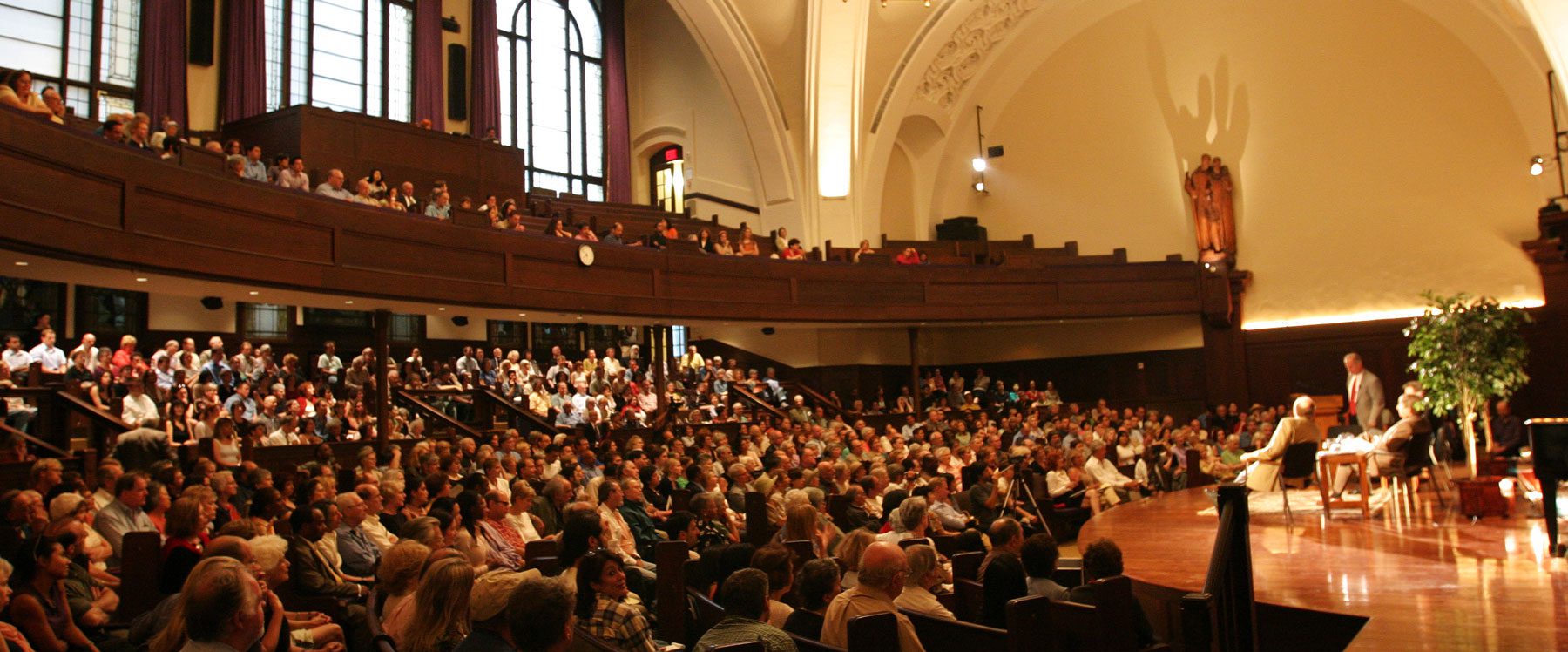
Because it is the breath of life
given form in words, punctuation
and spaces.
Because it reaches our deepest core
and carries us to another place
both familiar and foreign,
connects us to human experience
both universal and unique,
so that we know ourselves better than we did before reading it.
And because
when you least expect it –
and need it most –
it appears at your feet,
embedded in a NYC sidewalk.
Plaque on Library Way on 41st Street between Park and Fifth Avenues, Manhattan
If you attend Sunday platform regularly, then you know that I often begin and end my talks with poetry. It is a form of prayer to me, sacred text for an ethical religion.
When I turn on my computer in the morning, a poem awaits me, courtesy of the Writer’s Almanac (http://writersalmanac.org). I scan it first, taking in the form and shape of it; then read it aloud to decide whether to add it to my collection, now nearly 800 pages. What qualifies as a “keeper”? A poem that I’ll want to read again and again, one that I can use in a Sunday platform or that may inspire a future platform address, a poem that I can use as a Humanist invocation at an interfaith or social justice event. The others I delete. . . Because while I love poetry, I don’t love every poem.
April is National Poetry Month (http://www.poets.org/national-poetry-month/home). I learned about this when my children were in elementary school. P.S. 321 was a haven for the arts, and in April everyone – students, faculty, administration, maintenance staff, and parents – carried a poem in her or his pocket. What’s more, you could stop anyone (“Even Principal Heaney, Mom!), and ask to hear the poem read aloud.
After many Sundays together, I have converted a few of you. Here’s an invitation: Stop by my office, room 502, and on the inside knob of the door, you will find a bag hanging, with a sign above it the reads:
Reach in and take out a handful of poems.
Tuck them into your pockets,
stuff them in your purses and briefcases,
put them in different rooms of your home,
hide them in cupboards and drawers,
forget about them.
Then –
one day when you least expect it –
find one.
Read it out loud,
let the words roll around in your mouth and savor them.
Carry the poem around with you all day,
share it with a friend,
fall asleep and dream about it.
Wake up and live better than you ever imagined possible.







